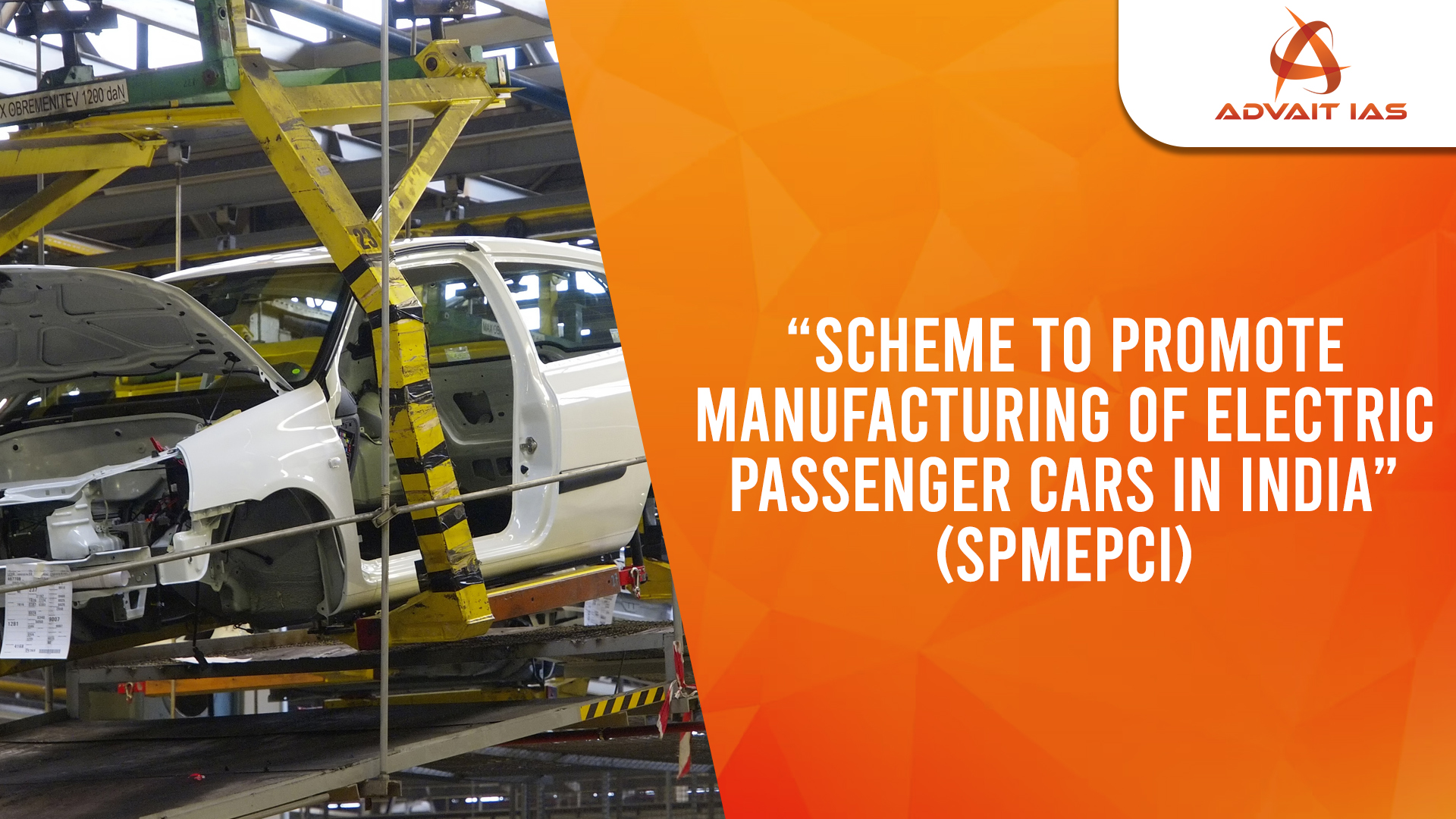The Government of India has notified guidelines under the Scheme to Promote Manufacturing of Electric Passenger Cars in India.
- Implemented by Ministry of Heavy Industries (MHI)
- It allows foreign automakers to import electric vehicles (EVs) at a reduced customs duty rate of 15% (down from 70–100%), if they commit to local EV manufacturing with a minimum investment of ₹4,150 crore.
- The move aims to attract global EV players, boost domestic manufacturing, and advance EV adoption in India.
- Aligned with India’s national goals of achieving net zero by 2070.
Key Features of the New EV Manufacturing Scheme
Import Duty Concession
- Approved companies can import up to 8,000 completely built units (CBUs) of electric 4-wheelers (e-4W) per year.
- Import duty reduced to 15%, applicable for 5 years from the date of approval.
- Eligible only for EVs with a minimum CIF (Cost, Insurance, Freight) value of USD 35,000.
Investment & Timeline Commitments
- Minimum investment of ₹4,150 crore (approx. USD 500 million)
- Operations (manufacturing) must begin within 3 years from approval.
- Investment must be in:
- New plant, machinery, equipment, and utilities.
- Engineering, research & development (ER&D).
- Charging infrastructure (up to 5% of total investment).
- Land costs are excluded, but new buildings (main plant + utilities) are allowed (max 10% of investment).
Domestic Value Addition (DVA) Criteria
- Minimum DVA of 25% to be achieved within 3 years.
- Minimum DVA of 50% to be achieved within 5 years from approval date.
Bank Guarantee Requirement
- A bank guarantee must be furnished by applicants from a scheduled commercial bank in India.
- Guarantee amount must equal duty foregone or ₹4,150 crore, whichever is higher.
- Ensures compliance with:
- Investment
- Manufacturing
- DVA commitments.
Application Guidelines
- Applications accepted during a 120-day window, expected to open shortly.
- Scheme valid for submissions till March 15, 2026.
- Application Fee: ₹5,00,000 (non-refundable).
- Ministry of Heavy Industries retains authority to reopen the application window as needed.
Cap on Duty Forgone
- Maximum customs duty exemption (per applicant) capped at ₹6,484 crore.
Significance of the Policy
- Promotes Make in India and strengthens the EV ecosystem.
- Aims to:
- Attract major global EV manufacturers.
- Encourage technology transfer and job creation.
- Reduce EV costs and increase adoption in India.
- Reinforces India’s commitment to sustainable mobility and carbon neutrality goals.






